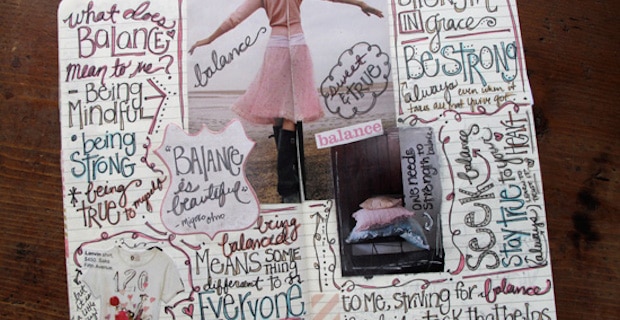
I have a built in stress meter. I can tell how stressed I am by how loud my tinnitus sounds. When I feel relatively balanced, I hear very low wave-like sounds that seem to come from one ear. When I’m stressed the tinnitus sounds like crashing swells blowing through my head from both sides.
So I was interested to read a recent New York Times article titled “How Exercise May Protect Against Depression,” given that “even mild, repeated stress can contribute to the development of depression and other mood disorders in animals and people.” Mood disorders, mania, and depression run in my family, so I need to actively make sure to lower my stress level.
Read more about sustained stress changes the brain
I’ve been exercising almost all my life, and I do it every day – first thing in the morning. Exercise was especially useful after my son Paul’s death fifteen years ago. That that kind of outlet kept me sane then, and it still does. That is, at least for a while. For example, I exercised this morning – forty-minutes of cardio followed by a little iron pumping and some Yoga stretches, causing my tinnitus sounds to almost disappear. Now after several hours at my computer, working at revising my novel, the sound has raised considerably.
So I think. Should I stop and go out for a walk? Sometimes I do. Instead I stayed in today and practiced walking meditation, walking up and back the long hall outside of my home office, breathing deeply and counting as I go.
My daily journaling practice helps reduce my stress as well. I turned to journaling regularly in 1993 after my son Paul was diagnosed bipolar, and I continued on after his suicide death in 1999. Journaling became my therapy. Keeping my fingers moving across the page was both an obsession and a healing balm. It gave me a way to organize my fears, pain, and thoughts. As a result I have become a huge proponent of journaling as a way to heal and ease stress. Right now I’m participating in a 30-day digital journaling challenge. That’s easy for me since I’ve been journaling on my computer rather than in a notebook for about fourteen years.
Even the physical act of writing is helpful. When I used a pen I wrote until my hand cramped. Now I type, sometimes pounding my fingers on my computer’s keyboard. It really helps. Also when I wrote by hand I found that I couldn’t keep up with my thoughts. Just today I typed over 500 words in a matter of minutes writing on the computer. I just tap away with no stopping for editing. It’s total stream of consciousness. My fingers seem to fly in time with what I have on my mind.
I’m especially reminded during the hard times in my life that no one is immune to the stressors of life. Whether it’s family problems, health struggles, chronic pain – physically or mentally, job issues, grief for relatives and friends who have died, or worries of any kind, we need a way to find relief – especially if there’s no one to talk to.
The page is there anytime for our tears, rants, sorrow, complaints, thoughts and ideas. The main thing is the page is always ready without judgment about anything we have to say. During my hardest times, I learned the page never told me what to do, it never told me how to handle my grief, and most important it never told me how long to grieve. It will be just as forgiving for you
In case you’ve never tried journaling, here are a few tips:
- Write in long hand in a notebook or type on a blank page on your computer.
- Don’t worry if you’re not a writer.
- Don’t worry about writing at specific time of the day.
- Keep your fingers moving for at least five to ten minutes at a time. In fact, even if you can’t think of anything to write, write down, “I’m keeping my fingers moving,” for as long as it takes for something to come to mind.
- Make lists of accomplishments or things you want to do in your day as you write.
- Build your confidence by declaring who and what you are; e.g., I am healthy, I am creative, I have gray hair and I’m proud of it, I lost five pounds, I like what I see when I look in the mirror – write a little about one of those declarations.
- And if you’re particularly creative, include pictures on your page and add quotes and clippings so that your journal becomes more like a scrapbook than a book of plain writing.
Read more about planning 'me time' to reduce stress
Just remember, everyone we know has good and bad stuff going on in their lives. Everyone has stressor. And everyone needs to keep the stress in check. I’ve learned that exercise and journaling are good ways to come to grips with my stress.
Image: Hope




